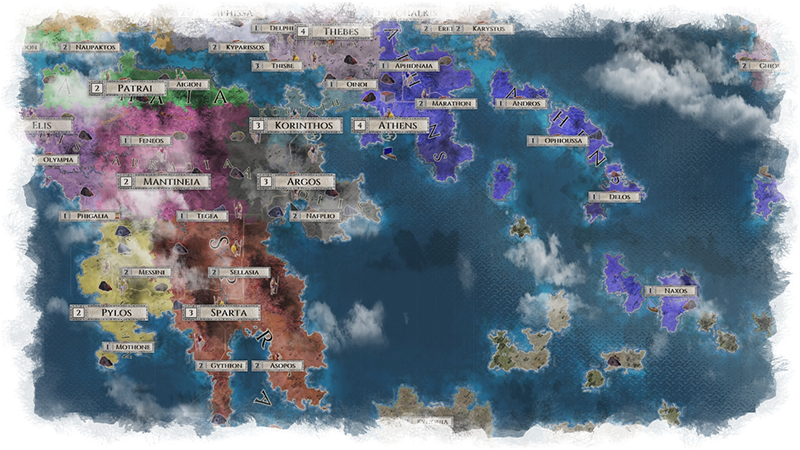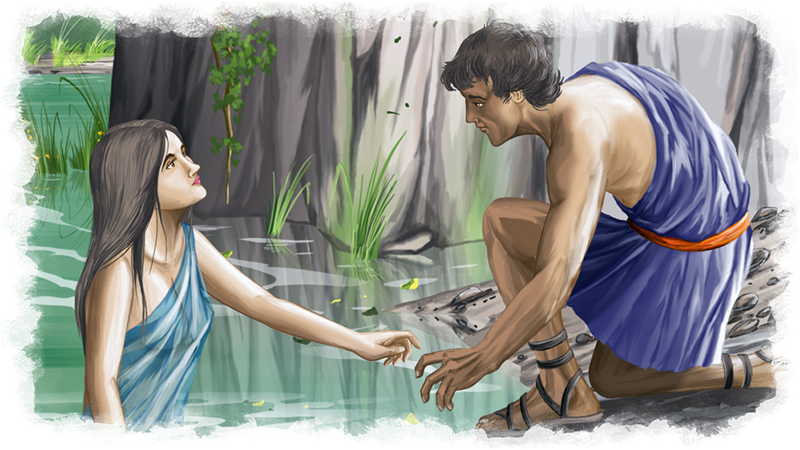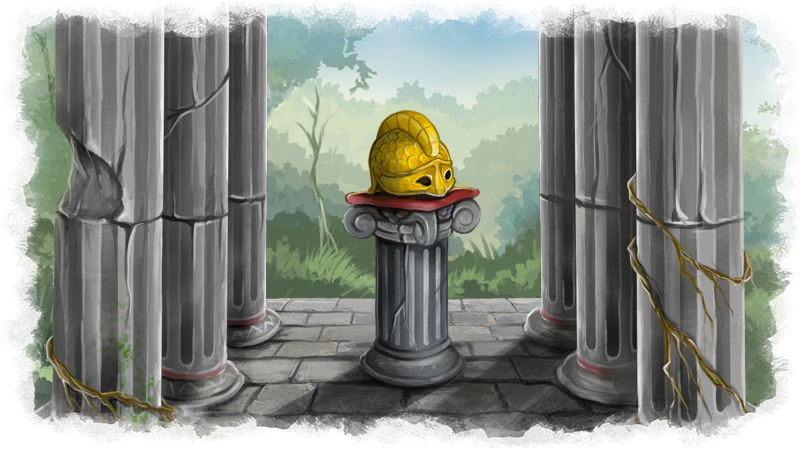Diplomacy and war go hand in hand. It is wise to explore all options for peaceful cooperation and to be careful who you choose as an enemy.
Imperiums offers many options for forging close diplomatic ties between countries. Strong relationships and friendships based on mutual treaties, pacts and unions between states can lead to fruitful cooperation. These ties require skilled diplomacy and time to succeed; gaining the trust of your opponents is just the first step in the process.
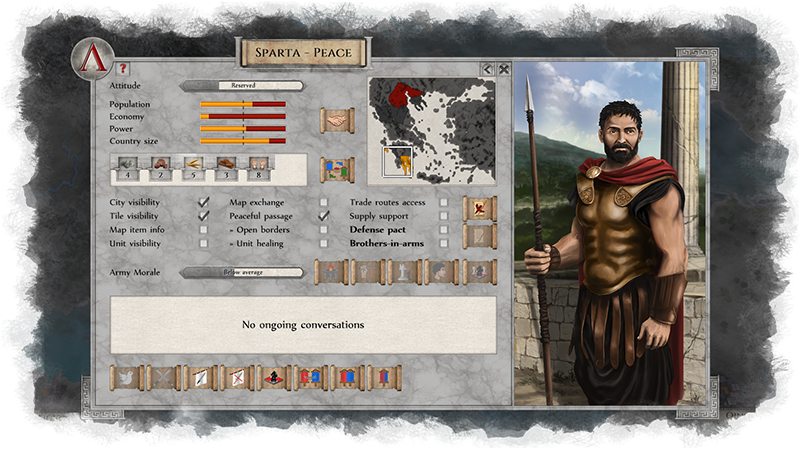
There are several minor
treaties of limited impact - if these can be agreed, trust will improve. As this trust develops, more complex and binding treaties come into play, such as the passage of foreign troops through your territory or the agreement to heal injured and damaged foreign units in your cities and facilities. Eventually you may even agree to the mutual support of troops with supplies. This can extend the reach of your supply lines into new areas that are ripe for expansion.
Trading is one of the best ways to cement mutual relationships. This is especially effective if you can strategically support your ally with their resource shortfalls. These trading inter dependencies create close bonds between states and are much appreciated by the AI.
You can assume the role of
peacemaker by requesting that two warring states forget their differences and sign peace. You will be the good guy here even if you have selfish motives (e.g. you need both states open their lands for your trade routes).
You can also request that one state
declares war on a third party. It is particularly useful to open hostilities on a new front with your enemy. However, strong demands like these, even if obeyed, may hinder your efforts to improve goodwill and develop partnerships.
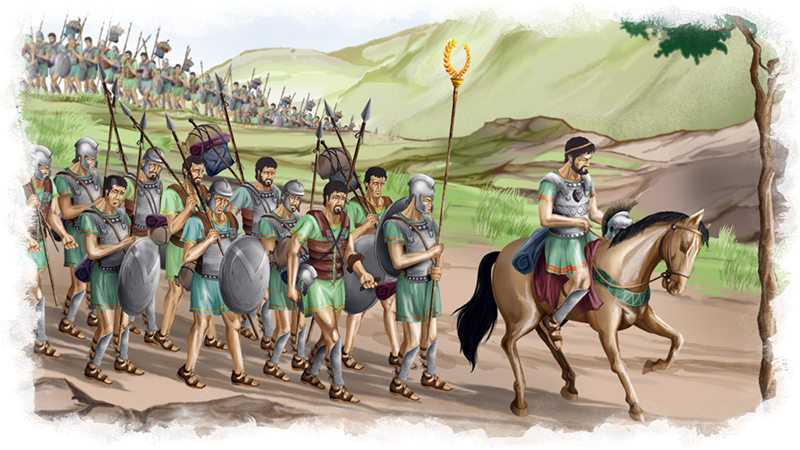
A more subtle way of forwarding your goals, at the expense of your neighbors (friends and foes alike), is the use
influence in foreign cities. Local governors can be bribed and persuaded to defect, their city becomes yours without the rattle of swords. In foreign territory your Generals can incite city revolts that distract the rulers, in a best case scenario the city may even surrender to you without a fight. Cities that defect come without damage and the immediate transfer of resources, population and territory will be a boost to you and a heavy blow to your opponent. Using influence will definitely not make you many friends but it is certainly a useful way of weakening your enemies!
When it comes to war, old injustices resurface, leading to conflicts that can draw in the entire world. History teaches us that the ancient Greeks could not maintain peace for long periods.
Imperiums will test your strategic and tactical skills to their limits. Wars are expensive and very few end quickly with only minor damage and losses. Planning ahead might save you time and effort, not to mention the lives of civilians and soldiers. Prepare, have your state’s resources and population in as healthy a condition as possible. Specialize and train your units according to the terrain they will be deployed in and the actions they will have to perform (e.g. city raiders, pathfinders, etc.).
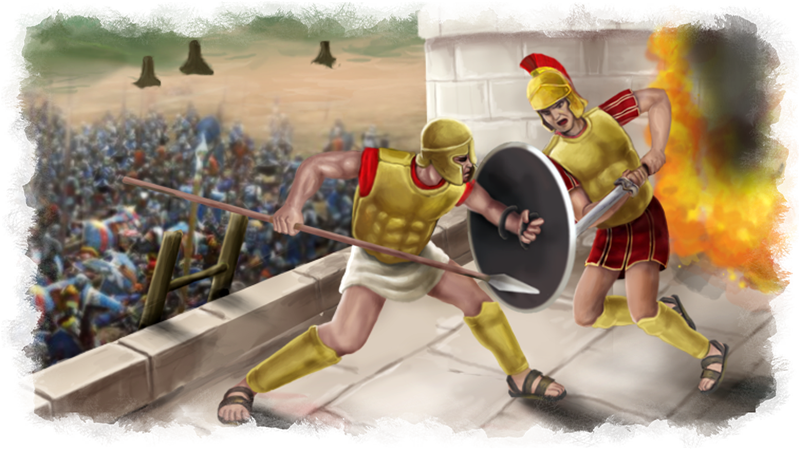
Planning a military campaign is not only about building and deploying troops though. Careful attention must be given to supply lines at all times. When invading, be sure not to overreach with your armies, too far and you risk your
supply lines being severed and your units stranded and cut off. Starving and injured units are much more likely to desert their command and defect to the enemy!
You will also need to keep a wary eye on the home front; any dissatisfaction along with the lack of local garrison units may encourage rebellious factions.
Agreeing on a
military campaign with your allies allows you to plan attacks from multiple directions, dividing the enemy forces to make victory more likely. Joint military campaigns allow you to plan which troops will attack, alongside the timing and location of the attack.
You will need to master diplomatic skills, strategic planning and tactics if you want to survive and grow to greatness in
Imperiums!




